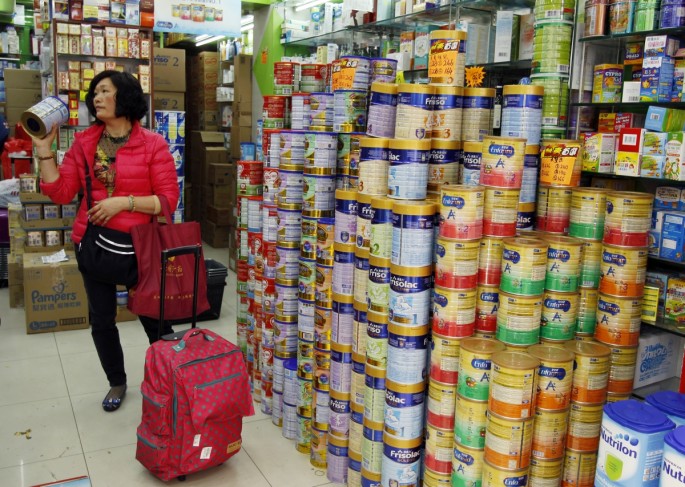Chinese consumers are now shying away from New Zealand infant formula following threats made by suspected environmental activists to contaminate the product with agricultural pesticide, the head of an exporter group said on Wednesday.
Orders for infant formula, a prized commodity among China's growing middle class, have dropped sharply after New Zealand police said Tuesday that unidentified people sent letters to Fonterra Cooperative Group, the world's biggest dairy exporter, threatening to taint their formula with the poisonous pesticide 1080.
The letters, which were sent in November, said action would be taken by the end of March if the New Zealand government did not ban the use of 1080 to kill pests such as rabbits and possums.
Following the announcement, Chinese authorities said that they will increase scrutiny over milk powder imports from New Zealand, whose dairy products make up for a quarter of its export earnings.
"China has already taken steps and will demand each batch of milk powder imported from New Zealand that has an official New Zealand certificate that it does not contain 1080," China's General Administration of Quality Supervision, Inspection and Quarantine stated on its website.
China is New Zealand's biggest dairy importer, purchasing $3.11 billion worth of milk products in 2014, nearly one-third of the country's global exports. The announcement has also battered the New Zealand dollar, which sunk to a five-week low on Wednesday.
Small New Zealand businesses selling formula in China are already seeing a decline in orders, Michael Barnett, chairman of the New Zealand Infant Formula Exporters Association, said in an interview with Reuters.
"They've reduced their orders, some of them by up to 70 percent," he said, adding that further negative online exposure could heighten fears in China.
The association represents companies that brand and market infant formula products manufactured by Fonterra and other New Zealand dairy firms.
In a statement, Fonterra CEO Theo Spierings denounced the threat as a "despicable act" and that their products are safe.
"We have done everything in our power to ensure the security of our already world-class chain," he said.
New Zealand's agriculture ministry (MPI) also reported on Wednesday that the pesticide has not entered the dairy supply chain.
The latest incident is the third involving Fonterra in recent years. In August 2013, botulism-causing bacteria were allegedly found in some of Fonterra's products, although it was later proven to be false. The company also acknowledged finding traces of dicyandiamide in its milk powder earlier that same year.




























